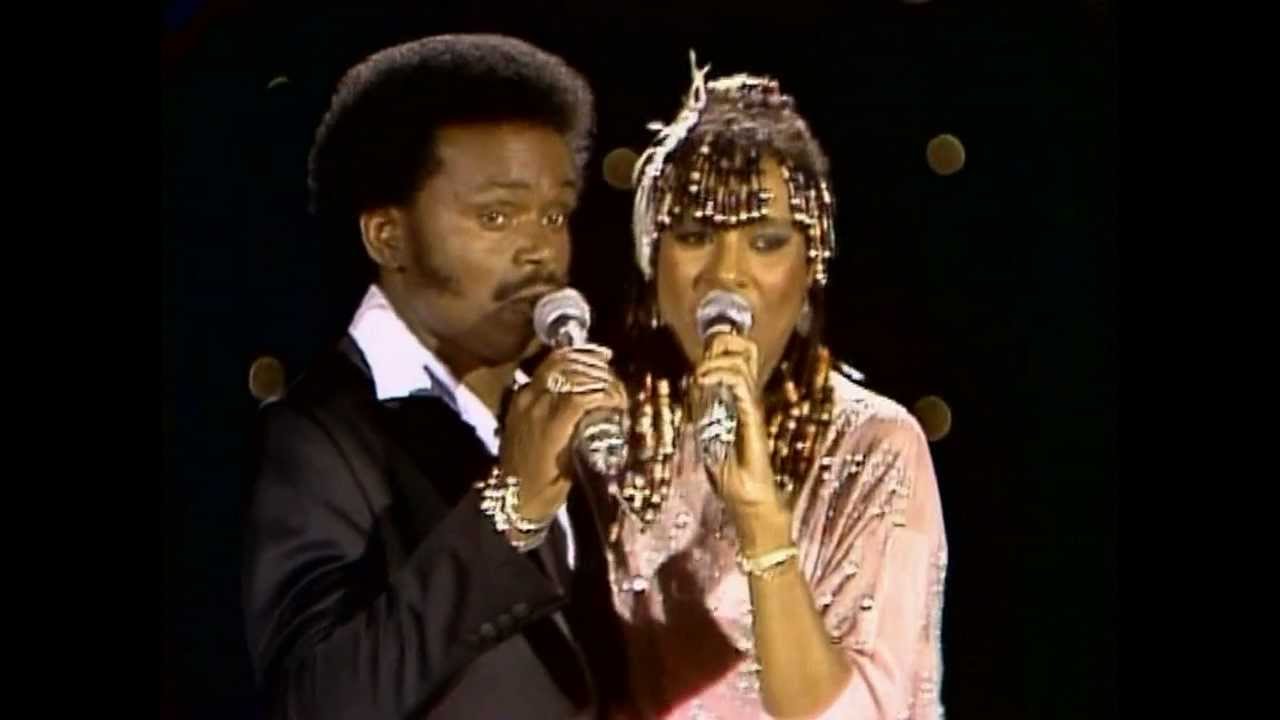
In the labyrinth of love, we often find ourselves at crossroads, faced with decisions that could flip our world upside down. The dilemma of wanting an ex and being pursued by her sister is one such complex situation, layered with emotional intricacies and potential repercussions.
This scenario not only tests your personal feelings but also puts the strength of familial bonds under the microscope. It’s a tightrope walk where one misstep could lead to a cascade of uncomfortable situations.
As we delve deeper into this topic, we’ll explore various perspectives, weigh pros and cons, and offer insights to help you navigate this tricky terrain. Whether you’re caught in this situation or just curious, you’ve landed at the right place. Let’s unpack this tangled web of emotions and relationships, one strand at a time.
“Is it okay to date my ex’s sister?”
In the realm of relationships, there are many questions that can make us uncomfortable, and one such question is whether it’s okay to date your ex’s sister. This scenario might not be as rare as you think, and it’s a delicate situation that requires careful consideration.
Respect is one of the key factors to consider. You must respect your ex’s feelings and the sibling bond that exists between her and her sister. It’s also important to consider your own feelings. Are you genuinely interested in the sister or are you trying to get back at your ex?
In some cases, people find themselves attracted to their ex’s sibling because of shared interests or a similar personality. It’s important to be honest with yourself and others about your motivations.
Communication is another vital element. You should talk to your ex and her sister about the situation. Be open and honest about your feelings, and listen to their thoughts and feelings as well.
Lastly, consider the potential fallout. Are you prepared to handle possible tension or awkwardness at family gatherings?
- Respect your ex’s feelings and the sibling bond
- Be honest about your motivations
- Communicate openly and honestly
- Consider the potential fallout
While there’s no definitive answer to whether it’s okay to date your ex’s sister, these considerations can guide you in making a decision that’s respectful and considerate of everyone involved.
“How to handle feelings for my ex?”
Dealing with lingering feelings for an ex can be a challenging task, especially when her sister comes into the picture. This delicate situation requires a thoughtful approach to avoid hurting anyone’s feelings.
Firstly, it’s crucial to acknowledge your feelings for your ex. Suppressing them can lead to confusion and further complicate the situation.
Secondly, consider the potential consequences of dating her sister. It could create tension within their family and potentially ruin their relationship.
Thirdly, communicate openly. If you feel comfortable, discuss your feelings with both of them. It’s essential to be honest, but also considerate of their feelings.
Fourthly, consider seeking professional help. A therapist or counselor can provide valuable insights and advice on how to navigate this complex situation.
Lastly, it’s crucial to give yourself time to heal. Jumping into a new relationship, especially with your ex’s sister, might not be the best decision when you’re still in love with your ex.
Remember,
- Acknowledge your feelings
- Consider the consequences
- Communicate openly
- Seek professional help
- Give yourself time to heal
Navigating this situation can be challenging, but with thoughtful consideration and open communication, it is possible to find a resolution that respects everyone’s feelings.
“What does dating my ex’s sister imply?”
Dating your ex’s sister may imply a range of things. It could suggest that you are still attached to your ex in some way or that you’re merely attracted to her sister. The situation may be complicated, especially if your ex is still in your life. It’s important to consider the potential consequences.
Family dynamics could drastically change if you decide to date your ex’s sister. There might be tension, awkwardness, or even hostility. You must be prepared to handle these potential changes in relationships.
In some cases, dating your ex’s sister may also imply that you haven’t completely moved on from your past relationship. The emotional baggage from your previous relationship could affect your new one. It’s crucial to ensure that your feelings for your ex’s sister are genuine and not a means to stay connected to your ex.
• Respect is a significant factor to consider. It’s essential to respect the feelings of your ex and her sister in this situation. They may have concerns or reservations about this new relationship. Open communication can help address these issues.
Lastly, dating your ex’s sister might imply that you’re comfortable with the potential repercussions. It’s a decision that could impact many relationships, not just yours. Therefore, it’s a decision that should not be taken lightly.
“How to communicate my feelings to my ex?”
Navigating the tricky waters of relationship dynamics can be a daunting task, especially when faced with a situation where you want your ex back, but her sister has shown interest in you. The first step is to recognize and understand your feelings. Are you genuinely interested in your ex or is it just a reaction to her sister’s advances?
Once you have clarity on your feelings, it’s time to communicate them. Start by arranging a private meeting with your ex. Be honest, but tactful in expressing your feelings. You might say, “I’ve been doing some thinking and I believe I still have feelings for you.”
However, before you take this step, consider the potential fallout. How will this affect your relationship with her sister and the family dynamics?
In the case where her sister has asked you out, it’s essential to be upfront with her as well. If you’re not interested, kindly decline her invitation. Honesty, in this case, will prevent future misunderstandings and potential heartbreak.
Remember, it’s crucial to respect everyone’s feelings in this situation. Even if you want your ex back, consider her feelings and the impact on her relationship with her sister. Clear communication and understanding are key in navigating this complicated scenario.
Finally, be prepared for all outcomes. Your ex may not reciprocate your feelings, or her sister may react negatively. It’s important to be mentally prepared for any reaction and to handle it with grace and maturity.
“Can dating the sister affect my relationship with my ex?”
Dating the sister of your ex can certainly lead to a complex web of emotions and potential conflicts. It’s important to consider the potential implications on your relationship with your ex. Firstly, the emotional repercussions could be significant. Your ex might feel betrayed or hurt by your decision, which could lead to a complete breakdown in your relationship with them.
Secondly, the family dynamics could be greatly impacted. This could potentially lead to tension and awkwardness at family gatherings, which might make it uncomfortable for everyone involved.
• Trust issues could also arise. Your ex might question your motives and whether you were interested in her sister all along. This could lead to a loss of trust, not just between you and your ex, but also between the two sisters.
Moreover, the sister might feel guilty or conflicted about dating her sister’s ex, which could lead to issues in your relationship with her. Lastly, your reputation might take a hit. Others might view your actions as insensitive or inappropriate, which could affect your personal and social life.
Therefore, while it’s not impossible to date your ex’s sister, it’s crucial to consider these potential consequences and handle the situation with sensitivity and respect.
“What are the ethics involved in dating siblings?”
The topic of dating siblings, particularly in situations where one has previously dated one sibling and is now considering dating the other, is fraught with potential ethical dilemmas. The situation, “I want my ex, but her sister asked me out?” is a classic example of this. The scenario presents a delicate balance between personal feelings and societal norms.
Firstly, it’s essential to consider the feelings of the ex-partner. Even if the breakup was amicable, seeing a former partner date a sibling can be a painful experience. It can lead to feelings of betrayal, jealousy, and hurt. It might also strain the sibling relationship.
Secondly, it’s important to consider the potential implications on the new relationship. The sister might feel like she’s living in her sibling’s shadow or that she’s a ‘second choice’. This could lead to insecurity and tension in the relationship.
Thirdly, there’s the question of how this will affect the larger family dynamic. It can cause awkwardness and tension at family gatherings, especially if the ex-partner is present.
A few tips to navigate this situation include:
- Open and honest communication with all parties involved
- Respecting the feelings and wishes of the ex-partner
- Ensuring the sister is not feeling ‘second-best’
However, every situation is unique, and it’s important to consider the specific circumstances and feelings of all parties involved. It’s also crucial to remember that while societal norms and ethics guide us, ultimately, personal happiness and well-being should take precedence.
“How to manage potential family conflicts?”
When dealing with delicate situations like wanting your ex back, but her sister has shown interest in you, it’s crucial to tread carefully to avoid potential family conflicts. It’s a complex situation that requires a high level of emotional intelligence and tact.
Firstly, it’s important to understand your feelings. Are you still in love with your ex, or are you just feeling lonely? If you’re sure about your feelings, try to communicate with your ex openly. It’s vital to express your feelings honestly, but remember to be respectful and considerate of her feelings too.
On the other hand, if her sister has asked you out, it’s essential to be upfront about your feelings. If you’re not interested, it’s best to politely decline. If you are interested, you should discuss this with both sisters to avoid any misunderstandings.
In any case, it’s always a good idea to seek advice from a trusted friend or a professional counselor. They can provide an unbiased perspective and help you navigate this tricky situation.
Remember, honesty and communication are key in managing potential family conflicts. It’s not easy, but with patience and understanding, it’s possible to navigate these complicated emotional waters.
Managing family conflicts can be challenging, especially when it involves romantic relationships. However, by being honest, respectful, and considerate of everyone’s feelings, these situations can be handled with grace and understanding. It’s important to remember that everyone’s feelings are valid, and everyone deserves to be heard.
In the end, it’s crucial to make decisions that are in the best interest of your emotional health and happiness. It’s okay to prioritize your feelings and ensure you’re making choices that align with your values and long-term goals.
“Is it possible to rekindle romance with my ex?”
The complex nature of human relationships often leaves us in a dilemma. You may find yourself in a situation where you yearn for a past love, while simultaneously being pursued by someone else. This predicament is not uncommon, especially when the person pursuing you is closely connected to your ex, such as her sister.
Firstly, it’s important to understand that wanting your ex back is a natural emotion. Breakup pain can linger, causing you to miss the familiarity and comfort of the relationship. However, this does not always mean that rekindling the romance is the best course of action.
Emotional maturity and honest communication are crucial when considering getting back with an ex. Analyze the reasons why the relationship ended in the first place. If these issues can be resolved, and both parties are willing to work on them, then there might be a chance for a successful reunion.
On the other hand, if the sister of your ex is showing interest, it’s essential to handle the situation delicately. Here are a few points to consider:
- Assess your feelings: Are you genuinely interested in her or is this a rebound situation?
- Consider the family dynamics: How will this affect your relationship with your ex and their family?
- Communicate: If you decide to pursue a relationship with the sister, it’s essential to have an open and honest conversation with both parties involved.
Remember, every situation is unique and requires careful consideration. It’s crucial to prioritize your feelings and well-being, as well as respect the feelings of others involved. Always strive for open communication, emotional maturity, and mutual respect in any romantic endeavor.
Wrapping Up: Navigating the Complexities of Love and Relationships
In conclusion, the predicament of “I want my ex, but her sister asked me out?” is a complex and sensitive issue that requires careful consideration. The topics covered in this post provide a comprehensive guide on how to handle this tricky situation.
We’ve discussed the moral implications of dating your ex’s sister and the potential impact it may have on your relationship with your ex. The importance of clear communication was emphasized, especially when it comes to expressing your feelings to your ex. We also explored the possibility of rekindling romance with your ex, and how this could be affected by dating her sister.
Furthermore, we’ve delved into the ethical aspects of dating siblings and how to manage potential family conflicts that may arise from such a situation. These insights highlight the importance of careful thought and consideration when navigating these complex relationship dynamics.
In terms of actionable advice, always prioritize open and honest communication, respect the feelings of all parties involved, and consider the potential long-term implications of your decisions. As for future trends, it’s important to remember that societal norms and attitudes towards relationships continue to evolve, which may influence how situations like these are perceived and handled in the future.







